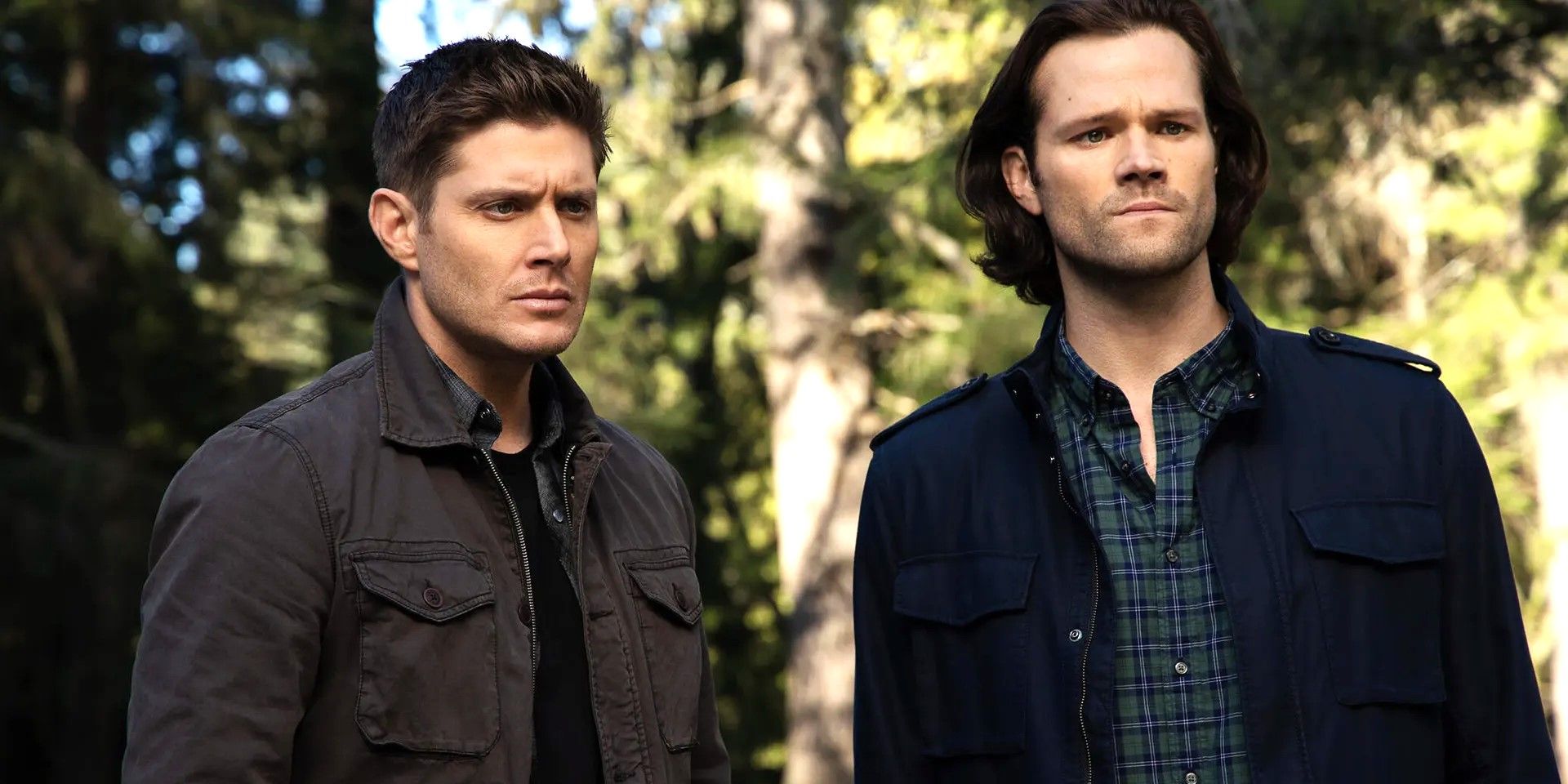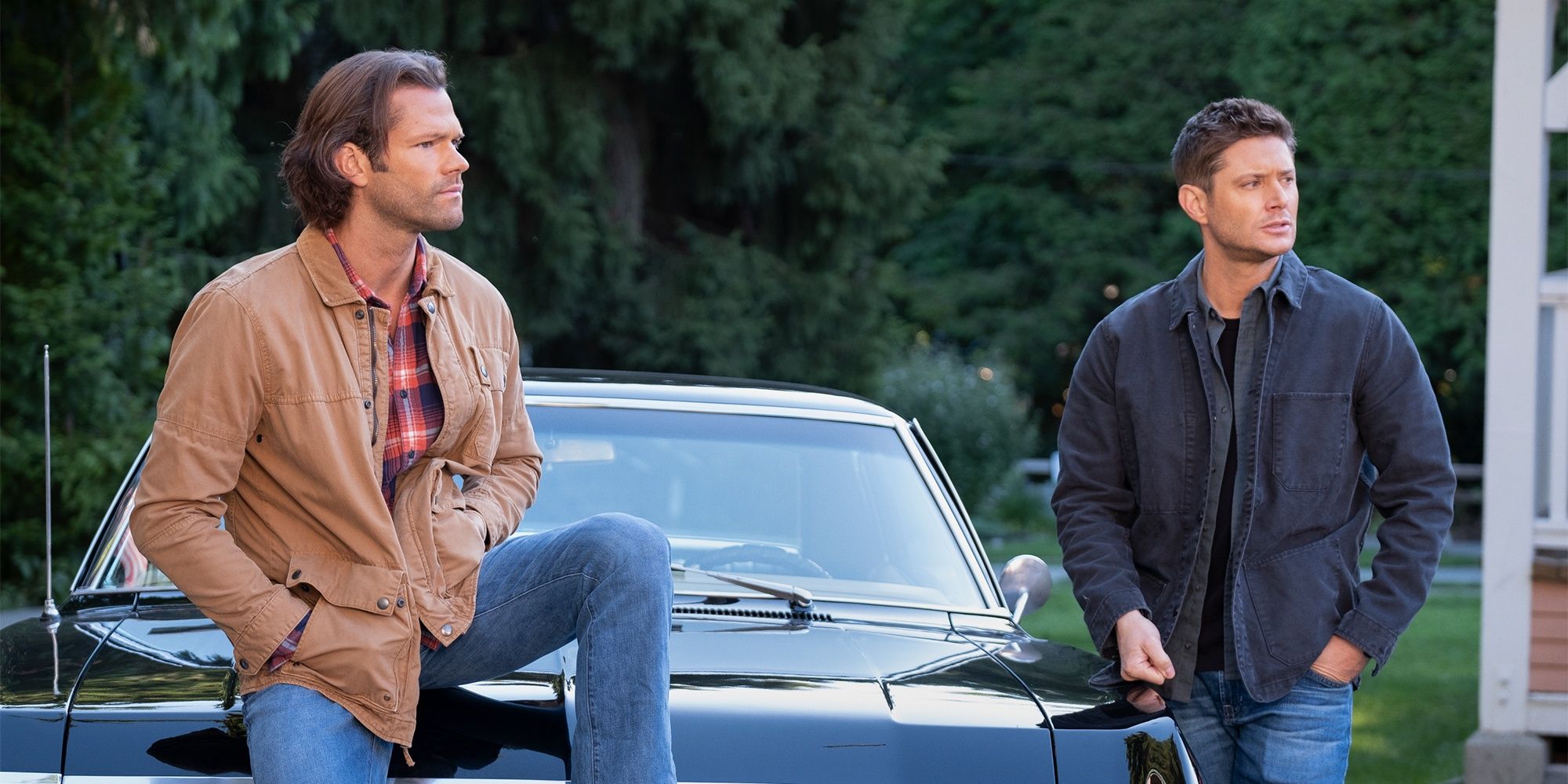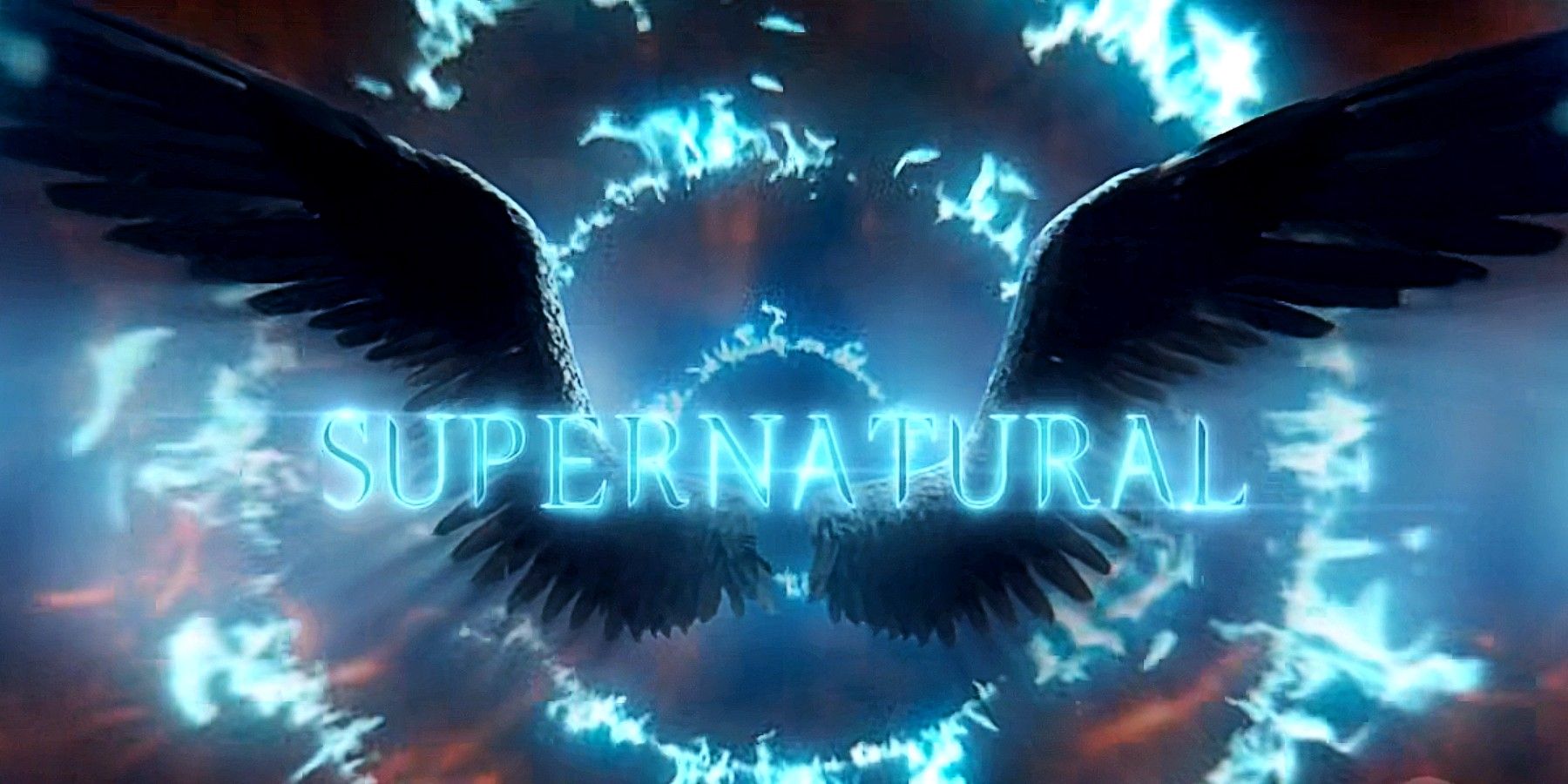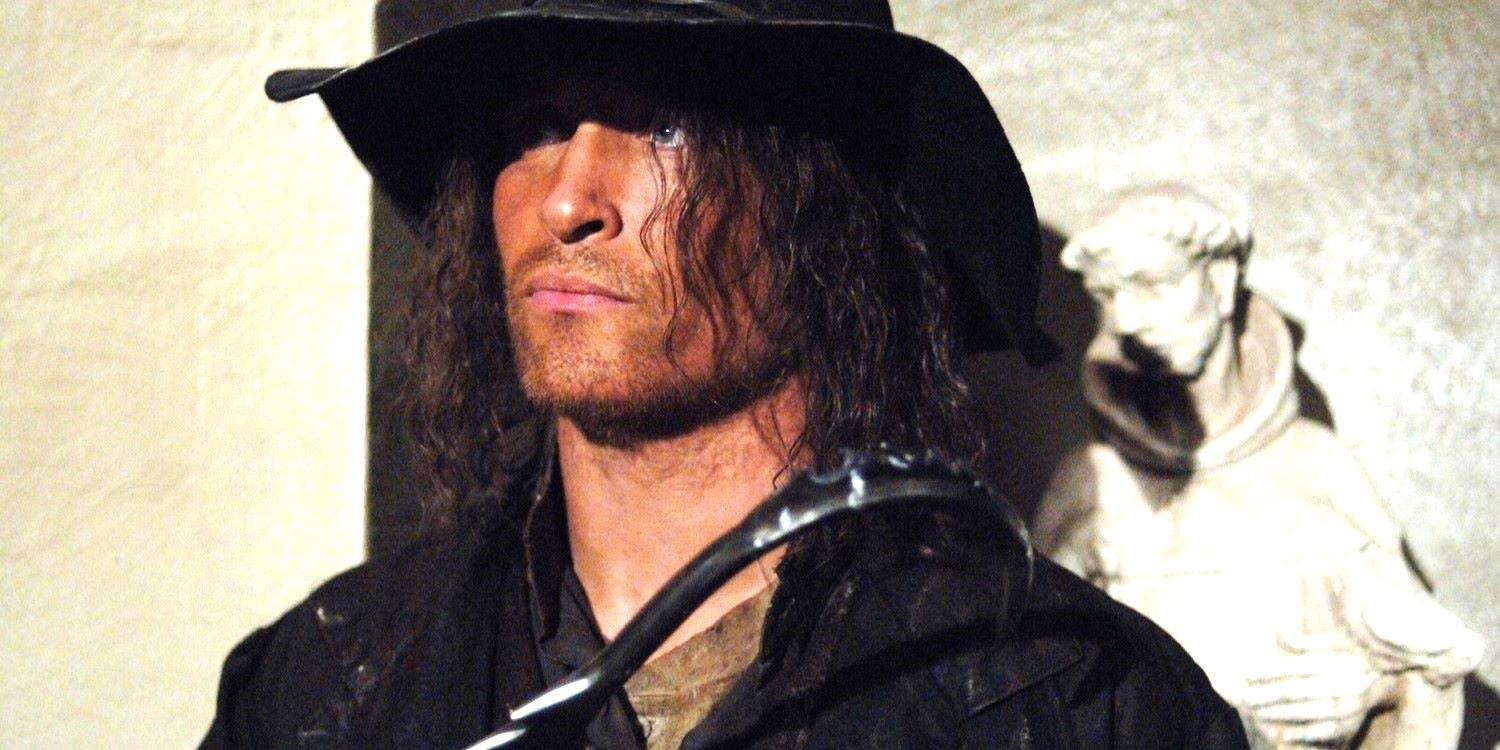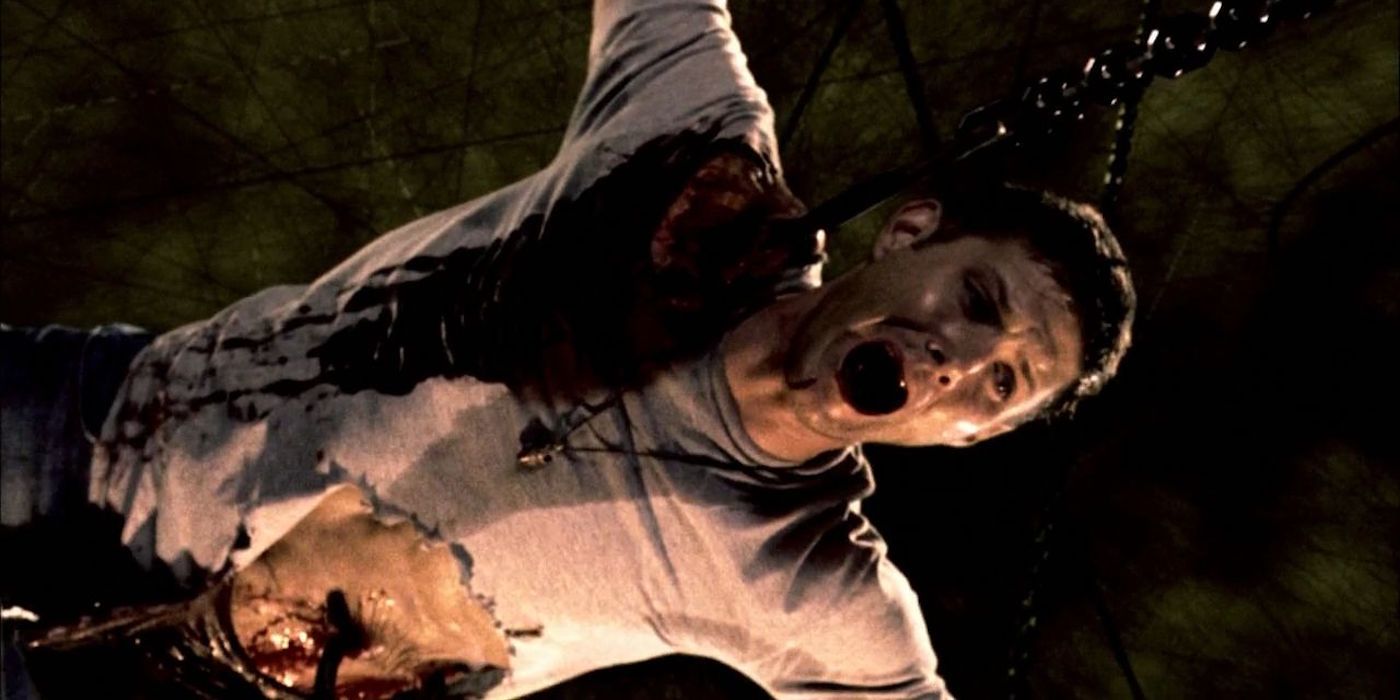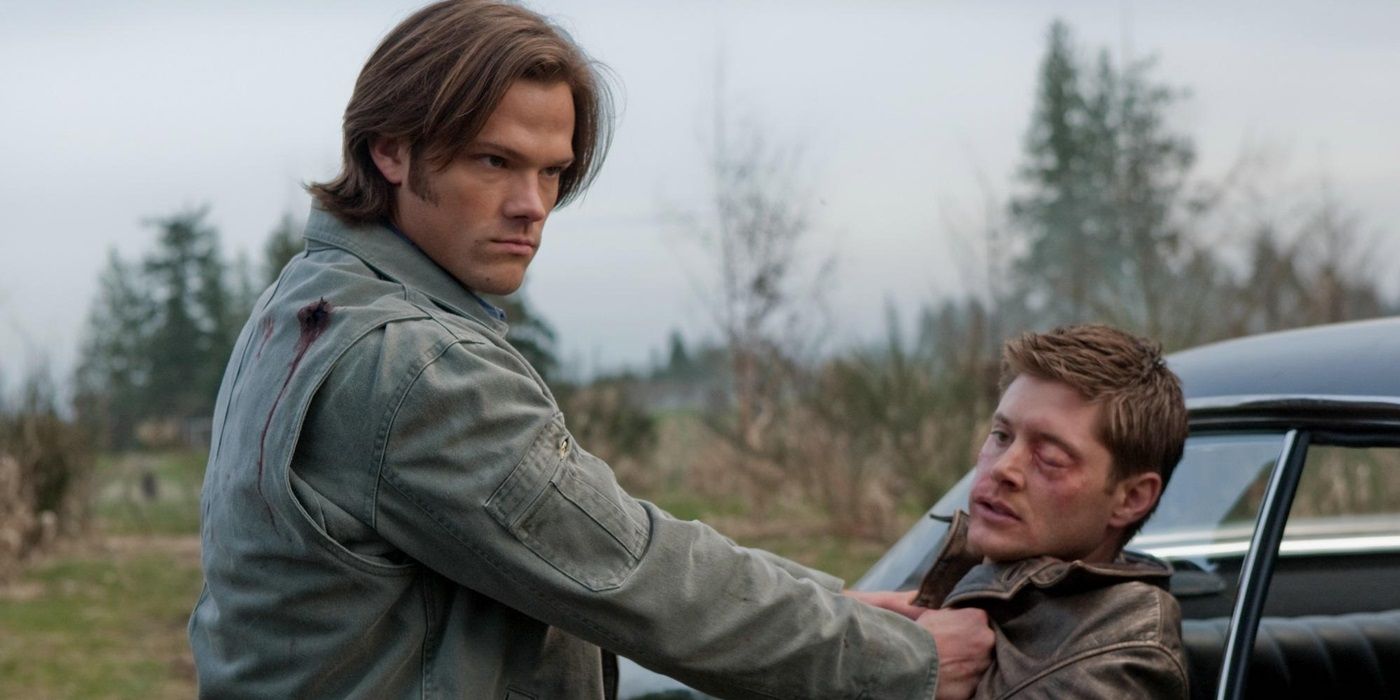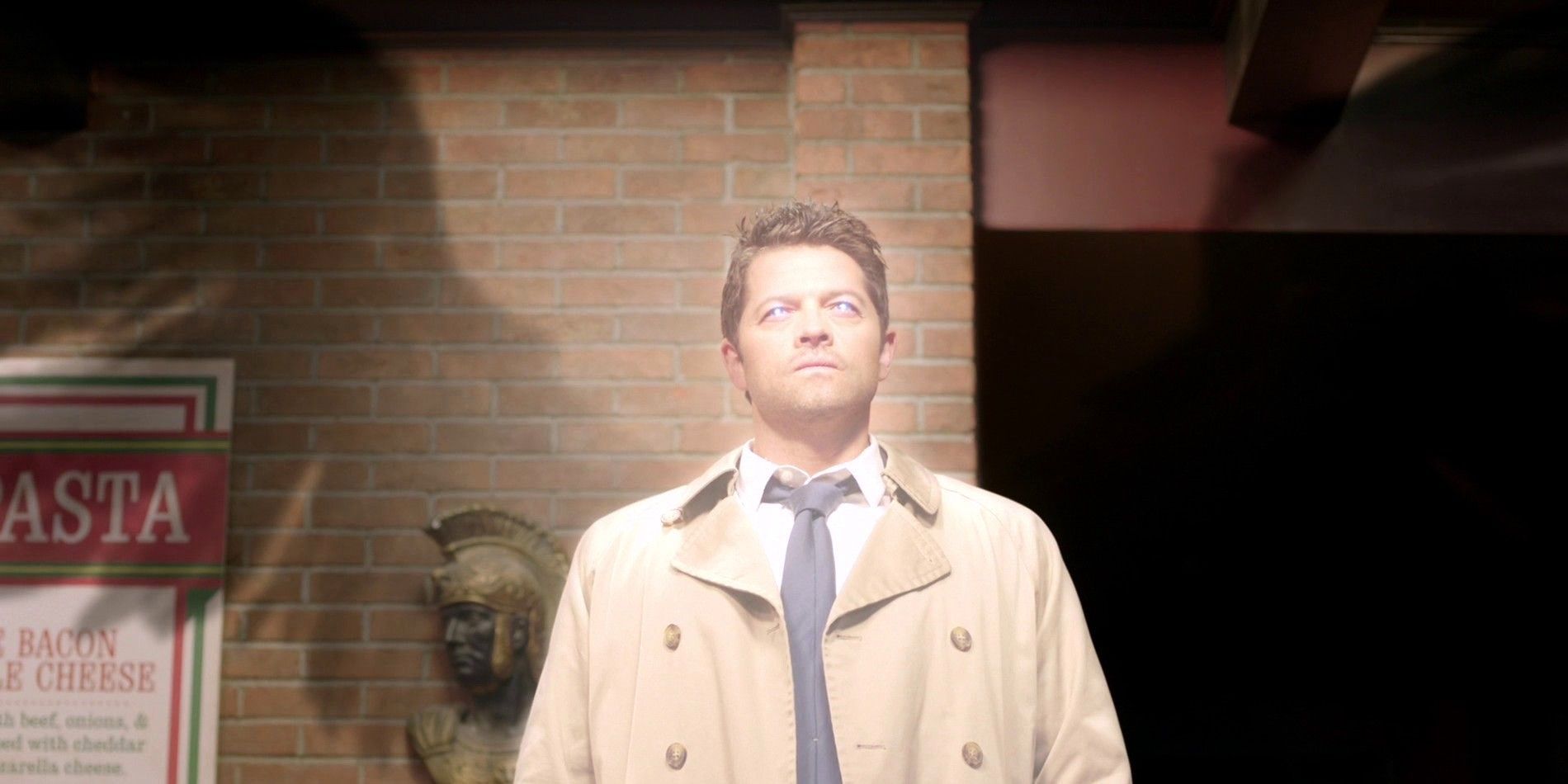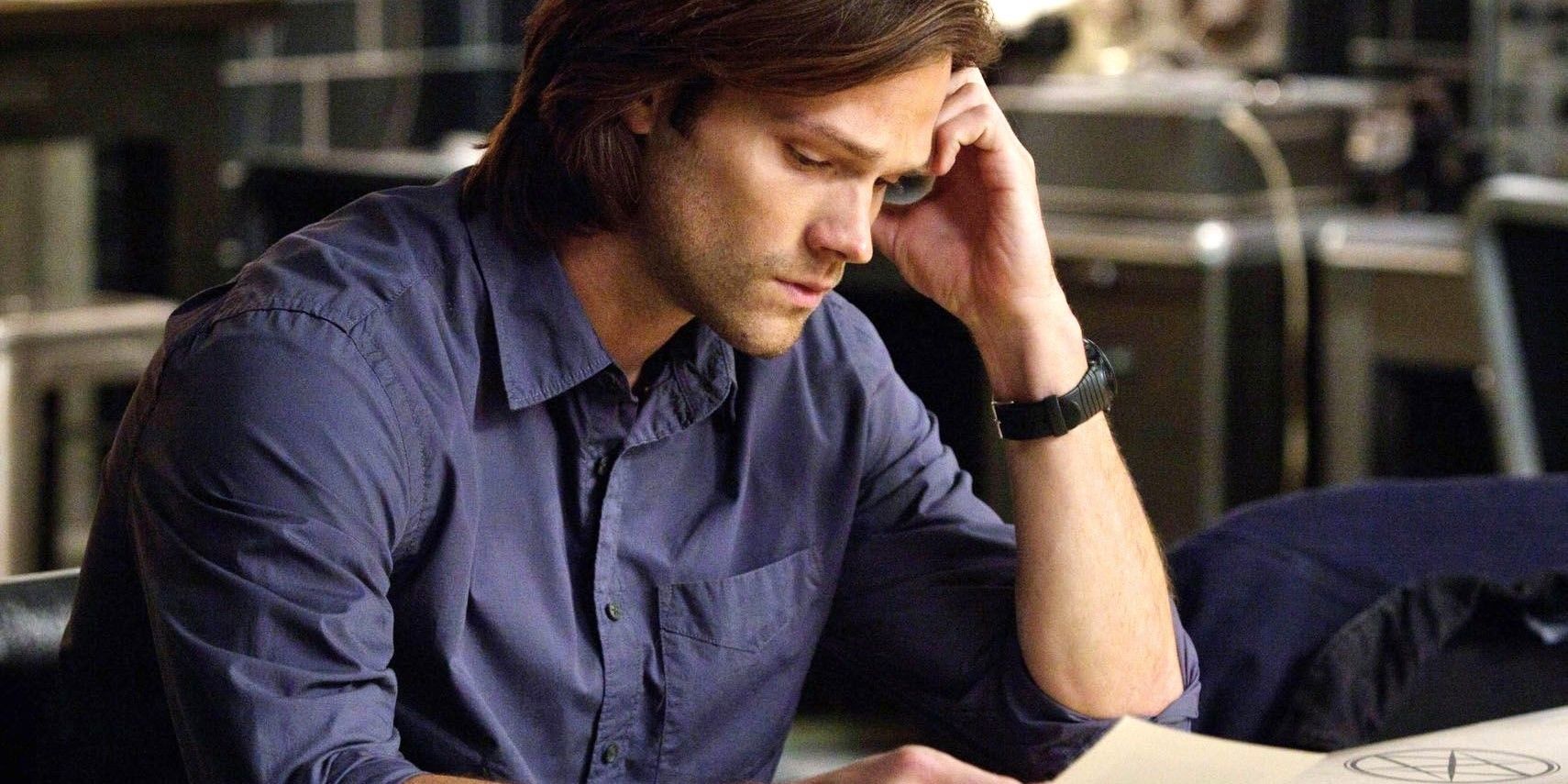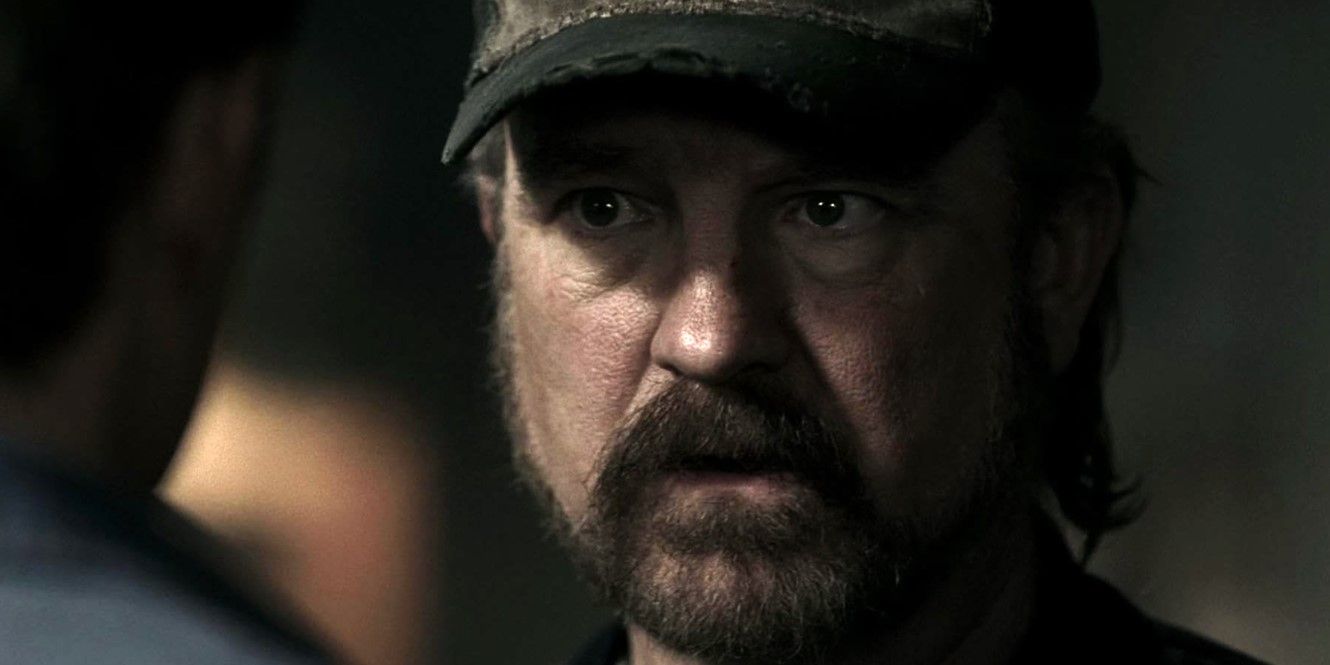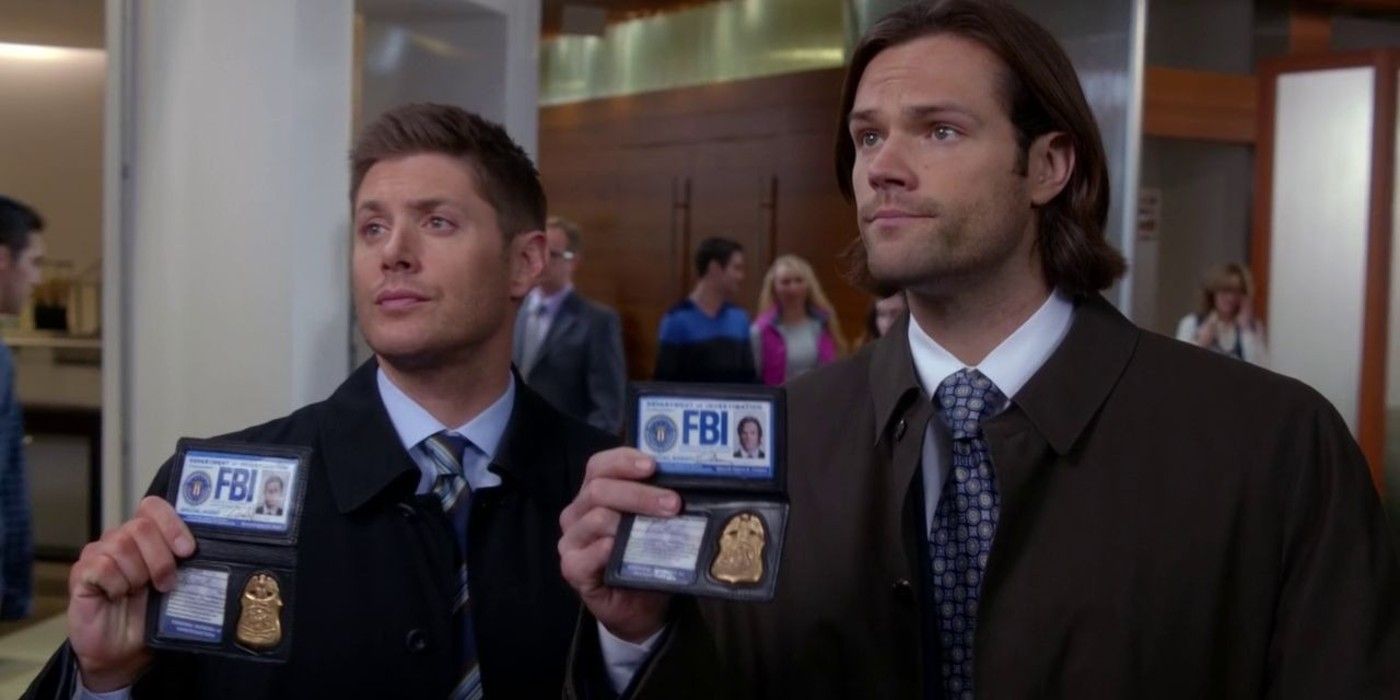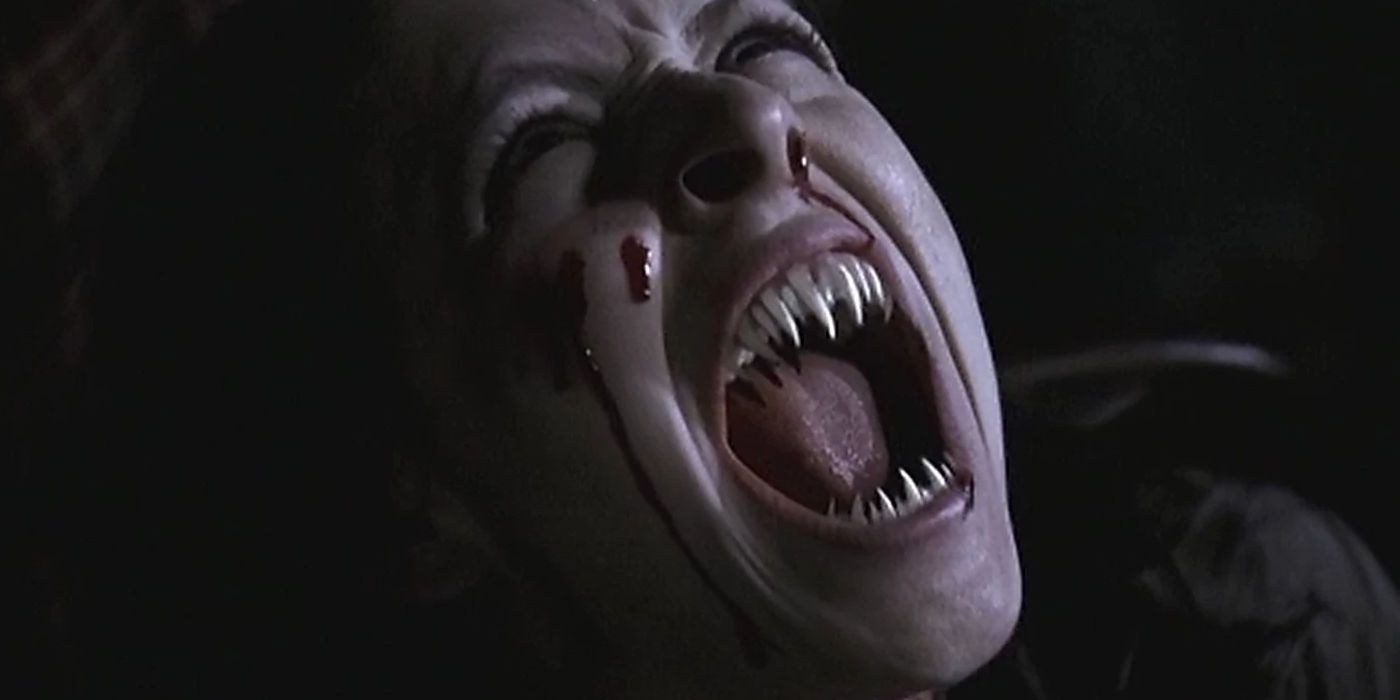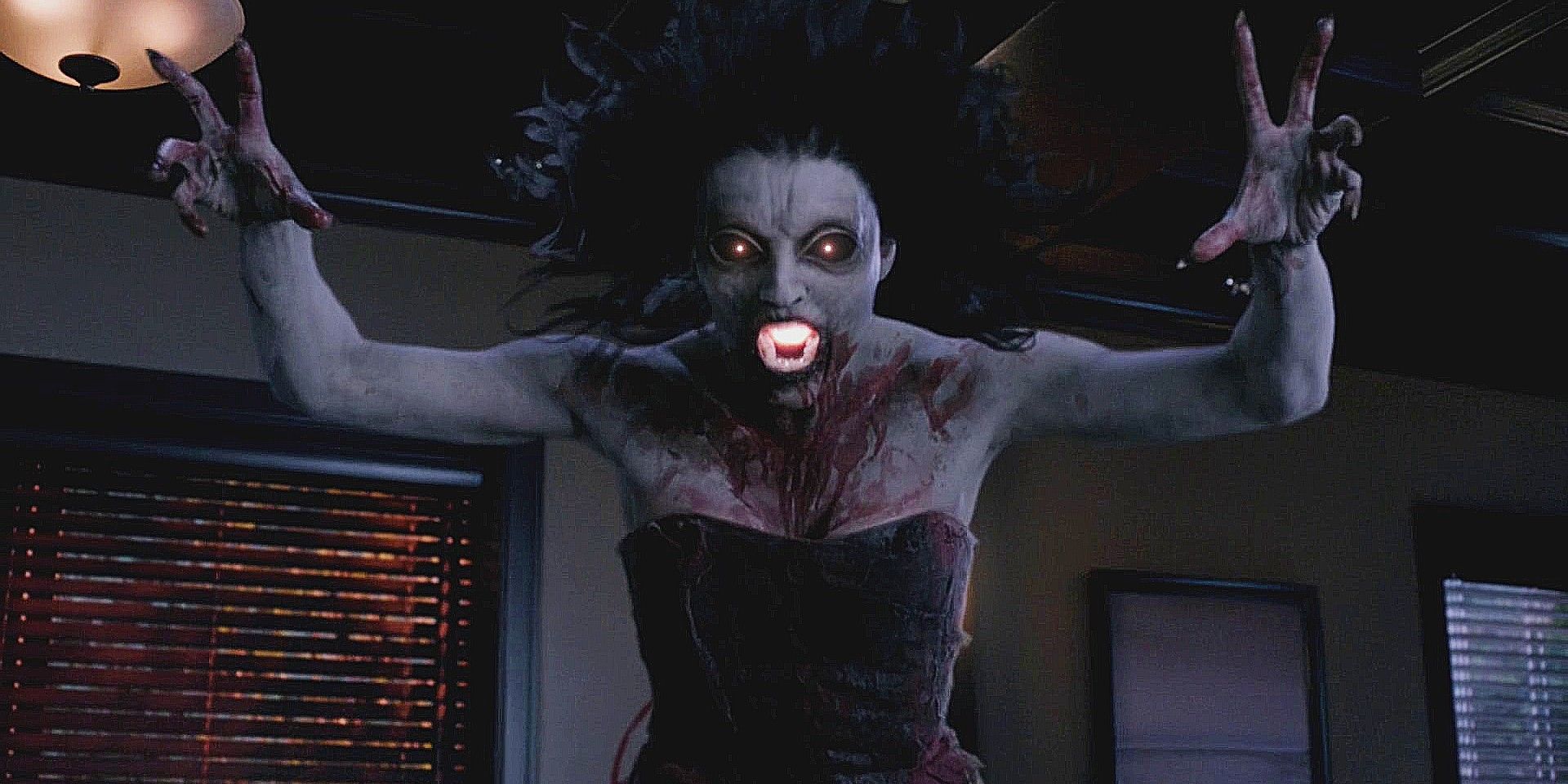Supernatural may seem unimaginable any other way after 15 seasons, but the show certainly underwent changes that differed from how show creator Eric Kripke, originally planned it. The drama-horror follows the Winchester brothers—Sam (Jared Padalecki) and Dean (Jensen Ackles)—as they find out more about their mother's death, fight things that go bump in the night, and save the world from time to time. Over the years, the Winchesters expand their team to include unexpected allies, like angels, demons, a vampire, and other hunters.
While many characters, storylines, and show-specific items have become intrinsically linked to the show, some of them weren't even on Kripke's radar at the start. Kripke has spoken about some of these alterations before, sharing that much of it came from taking opportunities he and the team had at the time and making the most of it. Sometimes this also included knowing which storylines would not work, like a scrapped "horror movie ending" idea for the series finale that Kripke shared with EW in 2020. Given Kripke's ability to go with the flow, there were quite a lot of changes that ended up being made to Supernatural's original premise.
11 Supernatural's Impala Was A Different Car
This one may be difficult to believe, but Dean's beloved 1967 Chevrolet Impala, known as Baby, was originally intended to be a different car. In an interview with The Daily Telegraph, Kripke recounted that he wanted "an American muscle car" for Sam and Dean, and had planned for Baby to be a 1965 Mustang. After talking to one of his neighbors, however, Kripke was convinced the Impala would be better. What sold him was his neighbor's argument that the Impala is perfect "because you can put a body in the trunk." While this is unsettling criteria, it's fitting considering Supernatural and some of the worst things Baby has gone through.
10 Supernatural Wasn't Called Supernatural
With such a long history of the name, it's almost unfathomable that Supernatural could be called anything else. In the original pitch for the show, however, the title was "Unnatural". Later, this was changed to Supernatural by production. Whether this is because of the connotations "unnatural" has, such as something being perverse or contrived, the change is certainly a welcome one. Supernatural as a title wholly encompasses the monster-horror genre, not to mention the variety of supernatural creatures seen over the years, from ghosts to golems.
9 Eric Kripke Wanted Supernatural To Be Super-Serious
Since Supernatural covers genres that typically deal with more serious tropes, it's unsurprising that Kripke was hoping for a scary, grave tone to the show. In The Daily Telegraph interview, Kripke shared that his inspiration was 1980s cult classics, like Steven Spielberg's Poltergeist. Kripke resonated with "the idea that horror can happen in your own backyard." For the most part, this darker tone is not entirely missing from the show. The earlier seasons, in picture quality and storylines, took on a darker approach with Sam and Dean hunting horrifying urban legends, like Hook Man. However, the more balanced humor weaved in with the end-of-the-world level dangers in later seasons proved to be better in the long run.
8 Supernatural Season 3 Was Much Longer
Since Kripke had Supernatural's original 5-season plan mapped out, the noticeable dip in episodes for season 3 is worth questioning. Most seasons are around 22 or 23 episodes long, but season 3 ends with only 16 episodes. This was due to the Writers' Strike of 2007-2008, which halted episode writing with 12 episodes already in production. Had the strike not happened, the season would most likely have met the standard 22 episodes.
In terms of story beats, Kripke revealed to TV.com, "I have a story that I need 10-plus episodes to tell. But this is a story that requires time to tell, and it deserves the time to tell it." According to Kripke in Supernatural Original Magazine #8, the plan had involved Sam's psychic abilities being much more fleshed out in order for him to stop Dean from going to hell. Retrospectively, this not happening allowed the season arc to be more direct thanks to the real-life events ultimately sending Dean to hell, while still giving audiences the show's usual moments of humor.
7 Supernatural Season 5 Was The Original Ending
Kripke has shared multiple times that he went into Supernatural with a five-season plan. The over-arching story would have ended with the brothers defeating Lucifer (Mark Pelligrino) after avenging their mother's death and discovering the connection between Azazel (Fredric Lehne) and Lucifer. However, Kripke himself admitted that details were less decided and stories developed more season by season (via Collider). The final episode of season 5 could have been a conclusive enough ending for the show but would have left some big questions unanswered, including the reveal that Sam was out of hell. Ultimately, there is still a debate about whether the show should have ended sooner.
6 Supernatural's Original Plan Didn't Have Angels
Despite the angels first appearing in season 4 with Castiel (Misha Collins), Kripke didn't have them in his original 5-year plan. In a Supernatural retrospective, Supernatural: The Long Road Home, Kripke said, "I thought it'd be too easy if someone really powerful could come in and save them" when elaborating on his non-angel policy. Despite Kripke's initial reason for steering clear of the angels and heaven, their addition allowed for grand-scale plot lines like God working with the Winchesters or Sam and Dean's respective escapes from Hell. Adding in angels and heaven helped add an opportunity for narrative balance between different forces throughout the show.
5 Sam Winchester Knew Nothing About Monsters
Sam quickly became the resident researcher of Team Free Will, available with monster lore whenever needed. However, Kripke's original plan had Sam being kept entirely in the dark about monsters and all things supernatural before the start of the show. This would have changed all flashback-heavy episodes, Sam's motivation for leaving home, and essentially his relationship with Dean and their father. Without Sam's recurrent rebellion against the supernatural and his longing for a "normal" life, he may have been a very different character, especially in the earlier seasons. This would also have changed the pilot episode heavily, altering Sam and Dean's first interactions and Jessica's (Adrianne Palicki) death.
4 Bobby Singer's Character Was Improvised
Bobby (Jim Beaver) became a fan-favorite character as he filled the fatherly void left by John for Sam and Dean. His wisdom and sarcastic wit with the Winchester brothers added an enticing and entertaining on-screen dynamic. However, Kripke shared in a tweet that his original plan for season 1, episode 22, "Devil's Trap," was to have Sam and Dean go to Missouri Moseley (Loretta Devine) for help finding their father. Because Devine was not available, Kripke wrote Bobby instead.
Had Kripke's original plan panned out, it's interesting to speculate if Bobby would have been included after season 1 regardless. It's difficult to picture a Supernatural where he isn't a phone call away as the Winchesters' fake federal contact.
3 Sam & Dean Winchester's Names Changed
The Winchester name is notorious in and out of Supernatural, but Kripke also revealed on Twitter that the brothers were originally going to be Harrison. Due to a legal concern regarding an existing real-life Dean Harrison in Kansas, Kripke had to change the name to Winchester. Given the claimed hauntings at the famous Winchester Mystery House, it's fitting that Sam and Dean, skilled gunmen and experienced hunters of paranormal entities, are named after the well-known family instead.
2 Supernatural Had A Non-Character-Based Format
In a 2019 interview with EW, Kripke said that he was originally more intrigued by the idea of Supernatural following a "monster-of-the-week" format, with each episode focusing on a different urban legend. This may sound familiar, since the first 10 episodes of season 1 each focus on a different self-contained legend or monster story, with little impact on the main storyline of the show. However, Supernatural's subsequent seasons weaved over-arching storylines through more standalone tales of different supernatural threats. Moving away from the anthological approach was a good move as it allowed the storylines to focus more on character relationships and build narratives with longer, more detailed arcs.
1 Sam & Dean Weren't Characters To Start With
There's arguably no Supernatural without Sam and Dean Winchester, but they weren't always a part of the plan. Following his more anthological idea, Kripke's envisioned a reporter character traveling across the country investigating urban legends in each episode. When this was not met with enthusiasm, Kripke pitched "two guys cruising the country, diving in and out of these legends." Without the driving force of Sam and Dean's quest to find Azazel, and all that follows, it's doubtful the show would have made it to 15 seasons. Creating space to focus on character development over time added intrigue that kept the show interesting beyond just monster fighting and shocking supernatural twists.
Rooting a story about supernatural beings in something as human as two brothers trying to maintain a sense of family is what made the show so compelling. It also allowed space to find relatable elements, like loss, grief, and love, in a fictional universe filled with aspects audiences couldn't relate to. Supernatural's deviations from Kripke's original plans were a creative opening into much more than he imagined, essentially allowing the show to go to new places narratively that aided in its longevity and popularity.
Sources: EW, The Dailly Telegraph, TV.com, Collider, TV Insider

